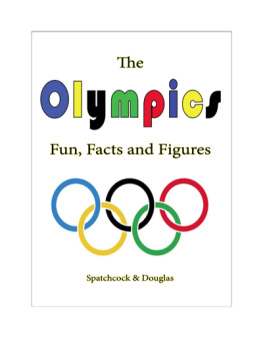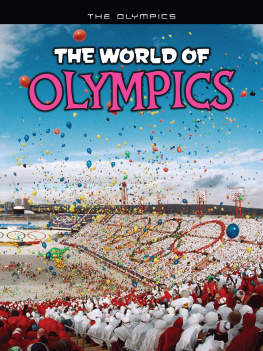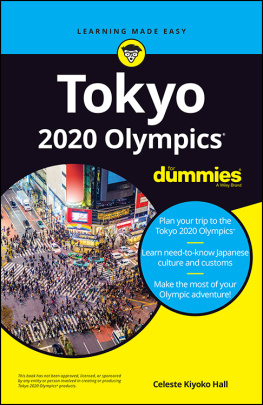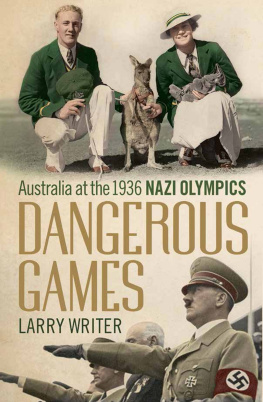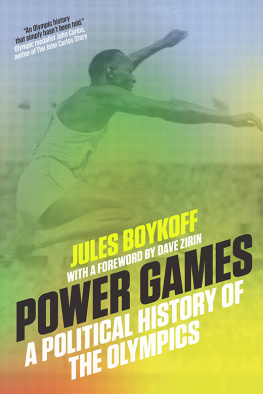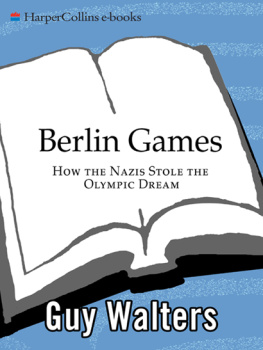In 1894, the French educator Baron Pierre de Coubertin came up with the idea of reviving the ancient Olympic Games tradition, and from this the modern-day Olympic Summer Games were born.
The Games are given to a city, rather than a country.
The Olympic Games celebrate each Olympiad or period of four successive years. For the modern Olympic Games, the first Olympiad celebration was in 1896. Thus the 1896 Summer Olympic Games are officially known as the Games of the I Olympiad, the 1900 Summer Olympic Games are known as the Games of the II Olympiad, and so forth.
As every four years celebrates another Olympiad, even the Games that were cancelled (in 1916, 1940, and 1944) count as Olympiads.
OLYMPIC FLAG
Created by Pierre de Coubertin in 1914, the Olympic flag contains five interconnected rings on a white background.
Each of the five rings symbolizes a major region of the world: Africa, the Americas, Asia, Europe and Oceana.
The interconnection of the rings symbolizes the friendship between the nations, coming together for sport.
The rings, from left to right, are blue, yellow, black, green, and red. The colours were carefully chosen because at least one of them appears on the flag of every country in the world.
The Olympic flag was first flown during the 1920 Olympic Games in Antwerp.
OLYMPIC FLAME
AND TORCH RELAY
In Olympia, in ancient Greece, a flame was ignited by the sun and then kept burning until the closing of the Olympic Games.
The flame itself represents a number of things, including purity and the endeavour for perfection.
The flame first appeared in the modern Olympics at the 1928 Games in Amsterdam.
It was Carl Diem, the chair of the organizing committee for the 1936 Olympic Games, who suggested what is now the modern Olympic Torch relay. The relay represents a link from the ancient Olympics to the modern Olympics. The Olympic flame is lit at the ancient site of Olympia (by women wearing ancient-style robes), using a curved mirror and the sun. The Olympic Torch is then passed from runner to runner from the ancient site of Olympia to the Olympic stadium in the hosting city. The day of the opening of the Games, the flame enters the stadium. With the lighting of the cauldron by the last relay runner, the flame is transferred from the torch to the place where it will continue to burn for the entire length of the Games. Once the Games have finished, the light is extinguished.
May joy and good fellowship reign, and in this manner, may the Olympic Torch pursue its way through ages, increasing friendly understanding among nations, for the good of a humanity always more enthusiastic, more courageous and more pure
Pierre de Coubertin
By carrying the torch, you will be bridging cultural and social barriers, and all the boundaries that separate nation from nation
Carl Lewis
OLYMPIC MOTTO
In 1921, Pierre de Coubertin borrowed a Latin phrase from his friend, Father Henri Didon, for the Olympic motto:
Citius, Altius, Fortius
(Swifter, Higher, Stronger)
OLYMPIC OATH
In the Olympic Oath, I ask for only one thing: sporting loyalty
Pierre de Coubertin
Pierre de Coubertin wrote an oath for the athletes to recite at each Olympic Games. During the opening ceremony, one athlete reads aloud the oath on behalf of all the athletes taking part.
The Olympic Oath was first taken during the 1920 Olympic Games (in Antwerp) by the Belgian fencer Victor Boin.
"In the name of all competitors, I promise that we shall take part in these Olympic Games, respecting and abiding by the rules that govern them, in the true spirit of sportsmanship, for the glory of sport and the honour of our teams"
The Olympic Oath
OLYMPIC CREED
Pierre de Coubertin got the idea for the Olympic Creed from a speech given by Bishop Ethelbert Talbot at a service for Olympic champions during the 1908 Olympic Games in London.
"The most important thing in the Olympic Games is not to win but to take part, just as the most important thing in life is not the triumph but the struggle. The essential thing is not to have conquered but to have fought well"
The Olympic Creed
IOC
Founded in Paris in 1894 by Pierre de Coubertin, The International Olympic Committees aim is to promote amateur athletics and to organize the Games. Now based in Lausanne, the committee generally comprises one committee member from each country participating in the Games.
Throughout its history, the international Olympic Committee has struggled to spread its ideal of fraternity, friendship, peace and universal understanding
Juan Antonio Samaranch
Holding an Olympic Games means evoking history
Pierre de Coubertin
The Olympic Games must not be an end in itself, they must be a means of creating a vast programme of physical education and sports competitions for all young people
Avery Brundage, 5th president of the IOC (1952-1972)
OLYMPIC ANTHEM
The Olympic Anthem, also known as the Olympic Hymn, played when the Olympic Flag is raised, was composed by Spyros Samaras (1863-1917) and the words added by Costis Palamas (1859-1943).
The Olympic Anthem was first played at the 1896 Olympic Games in Athens but wasn't declared the official hymn by the IOC until 1957.
Olympic Anthem
(English Lyrics)
Immortal spirit of antiquity,

